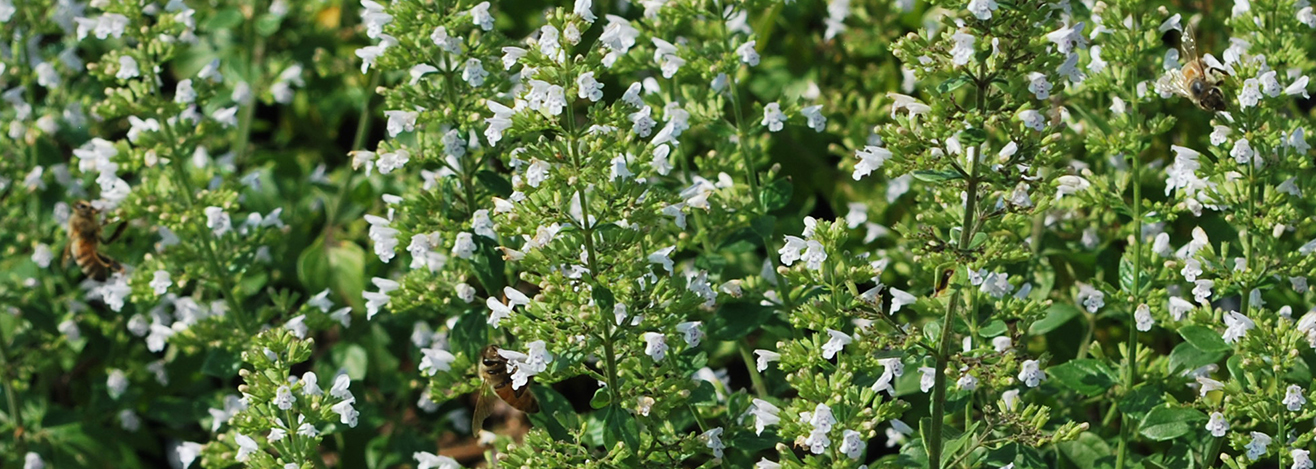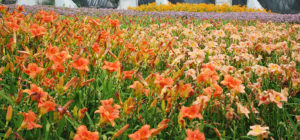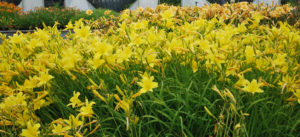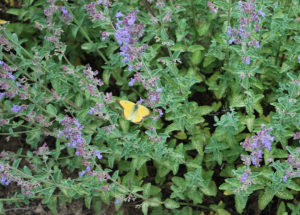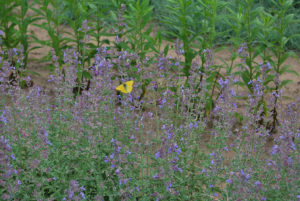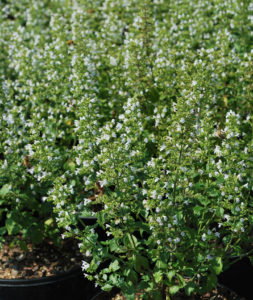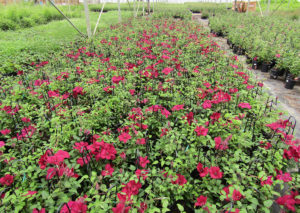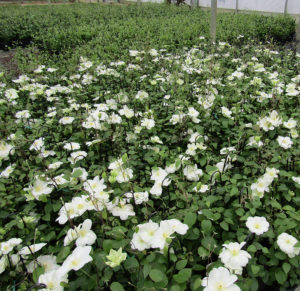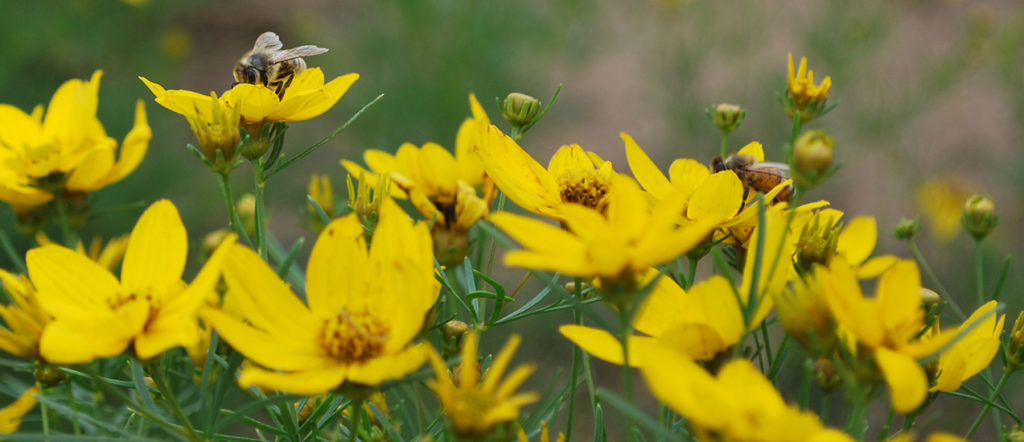
The restaurant business and the nursery business are similar in that we are judged every day by the product that we turn out and it is a complex product to produce and to do so with absolute consistency and quality. That is why I am considering becoming a Hindu—they get to believe in reincarnation with the possibility of coming back to an easier life—except that I would feel sorry for everyone else who had to see me walking around wearing a white diaper after the conversion. Then again, I could come back as a raccoon and have to eat cold slimy frogs—always a possibility if I do not start to behave better pretty quick.
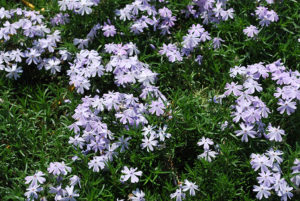
What got this rumination started is a recent walk through my fields of 400 foot long rows of perennials and seeing the thousands of Coreopsis verticilata ‘Zagreb’ and ‘Moonbeam’ clumps out in the sandy field making many new shoots. I want to make lots more because the shoots propagate really well this time of the year and then I am thinking of why there are thousands out in the field. It appears that we were short of these fine plants a couple of years ago and so I started propagating them promiscuously and then they did not sell and so I, not wanting to waste anything, planted them all out in the field. That may also explain the Artemisia ‘Silver Mound’ and Phlox subulatas out there.
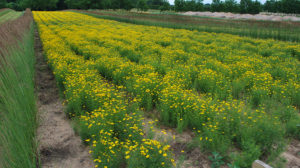
The problem is this: when we were short we got a reputation for not having enough coreopsis. The customers thought that we must have some deep-seated incompetence in running a nursery to be short of such easy to grow plants and so until we sought therapy we would always be short. We, of course, drew all sorts of other conclusions, which were to never be short again and to always have lots in the field to be able to dig up, divide and pot up into gallons. And so that is how the nursery business works; we are always reacting to history at the same time that our customers are reacting to history and we are each coming to diametrically opposed conclusions. The only possible solution is for me to communicate more and by communicating I have to admit to making an error. For money I will do this.
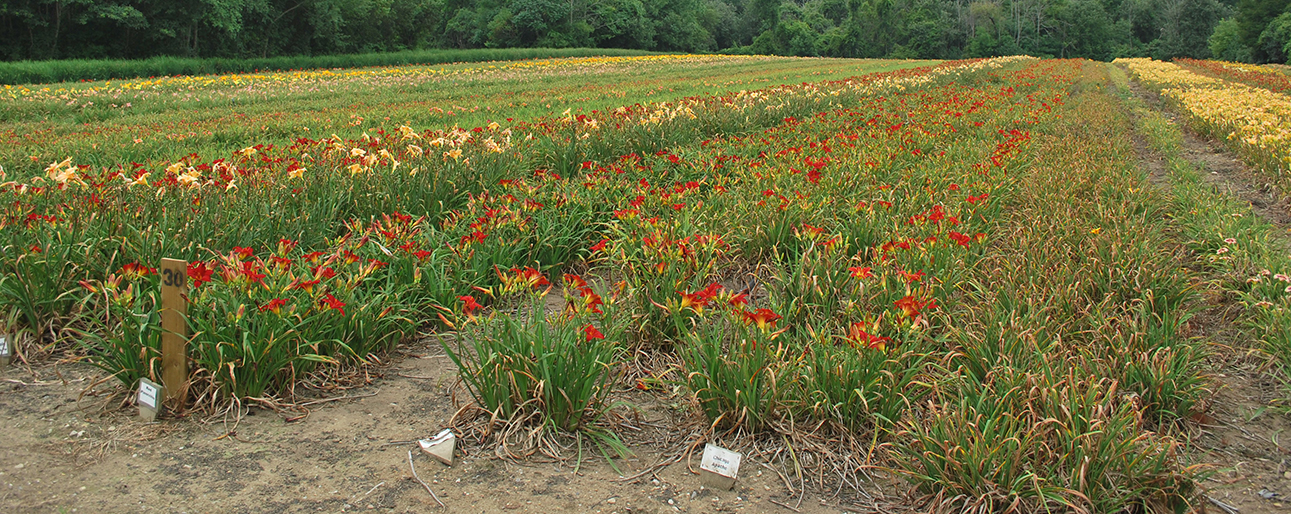
Looking at the fields reminds me that we do not have a large display garden such as Walters has by their office up in Zeeland. They have two or three full-time people working out there weeding and digging and planting and trimming. Midwest, over the other side of Chicago, also has a big display garden around their office. We, on the other hand, are lucky to get a load of gravel in every year or so to fill in the pot holes in the parking area around our office. It is tough taking over a nursery after a recession. At least we had a good running nursery to take over.What we are developing are large fields of stock plants. These are at two of our farms—Twixwood North and Shawnee South—with one being pure sand and the other being high-organic soil mixed with some clay. This coming summer both of these fields will be pretty to look at. We have signs and grassed walkways and we think things will be weeded this year. Customers and general passers-by people will be invited to tour our fields which are the closest things we will have to a display garden. At the least it will have mature plants and lots of blooms and the occasional bee or butterfly. Because everyone else at the nursery is working at an important job, I will be the only one available to give tours. The two farms are twenty minutes apart.
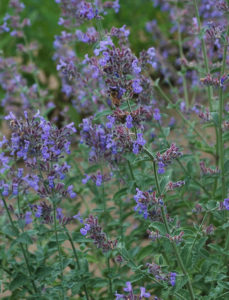
You will see that we have field planted stuff for two reasons. Sometimes it is just a source of cuttings. When growing any of the calaminthas or nepetas we only need about four plants to provide us with all of the thousands of cuttings that produce all of the gallons that we can sell in a year. You will be puzzled at why we have several hundred feet of these plants. Some days we are puzzled, likewise. As with many things in life, it seemed to be a good idea at the time. And then there are the plants that we grow to dig and divide. Plants that prefer to be dug and divided in the summer are: daylilies and liriopes. Both of these plants have fleshy thick roots or tubers or stolons or whatever they are called and so they do not die immediately upon getting hot and drying out a little. Everything else we dig when dormant for winter division. People ask us when is the optimum time to dig in the fall, and I, all the while trying not to give snippy answers, mention that before the ground freezes solid is a good time. I have found that even an inch of frozen ground will bend metal, so it is possible to learn things with age.
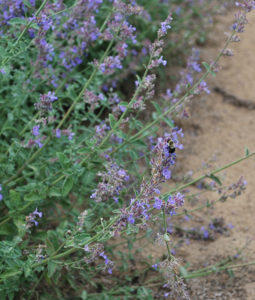
Much as I get psychic gratification from planting acres of plants in the field at about 50,000 plants to the acre and watching them grow and then digging them in the Fall, we are not set up to be a field grown and division nursery. That involves large coolers and freezers as well as some organizational ability. I tell people that the big benefit from doing our own field growing is that we can know for sure that the plants are true to name. Some people in some other countries have been known to ship whatever plants are on hand regardless of the color of the bloom in the hopes that the customers will forget who they purchased the plants from by the time they start to bloom in the middle of summer. And while I operate at a high level of optimism, it is not as high as those people in those foreign countries.
Speaking of buying in plants from foreign countries, we have had years of one hundred percent satisfaction with good quality plants true to name buying in clematis from Poland Container Nursery. We met Szczepan Marczynski many years ago while on an International Plant Propagators Society bus tour in England. Since then I have visited him twice during which all three of the children got to meet Szczepan (whom we call Stephen) and get an all day tour of Warsaw that was priceless. Stephen has visited our nursery half a dozen times giving our growers instructions on how to grow a good one gallon pot of clematis. As always, I am amazed that someone will ship tens of thousands of dollars’ worth of plants to someone across a really big ocean with the hopes of getting paid for them. Either Stephen has been really lucky or we are good to do business with.
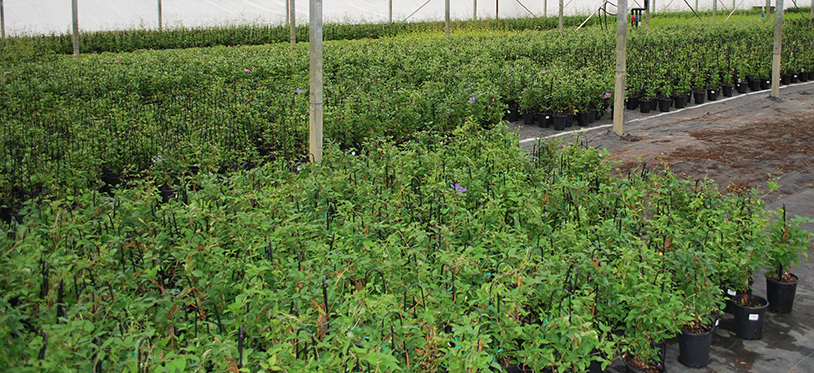
And that subject brings up all of the interesting people we have met because we were in the nursery business and mostly because we have been members of the International Plant Propagators Society. We do not want to get started or we could go on about Carl Wilson in Chicago who founded Wilson Nursery and Dennis Walters who founded Walters Nursery and Herb Jellum up in Minneapolis who worked for Bachman and then we might mention the wrong names and tell too many stories which is almost as bad as boring people with stories about people they have never met and then I might get accused of name dropping and who knows where this would all go.
All that I can say is that if I had had any idea of what was going to happen in the nursery business I would have acted better years ago.
